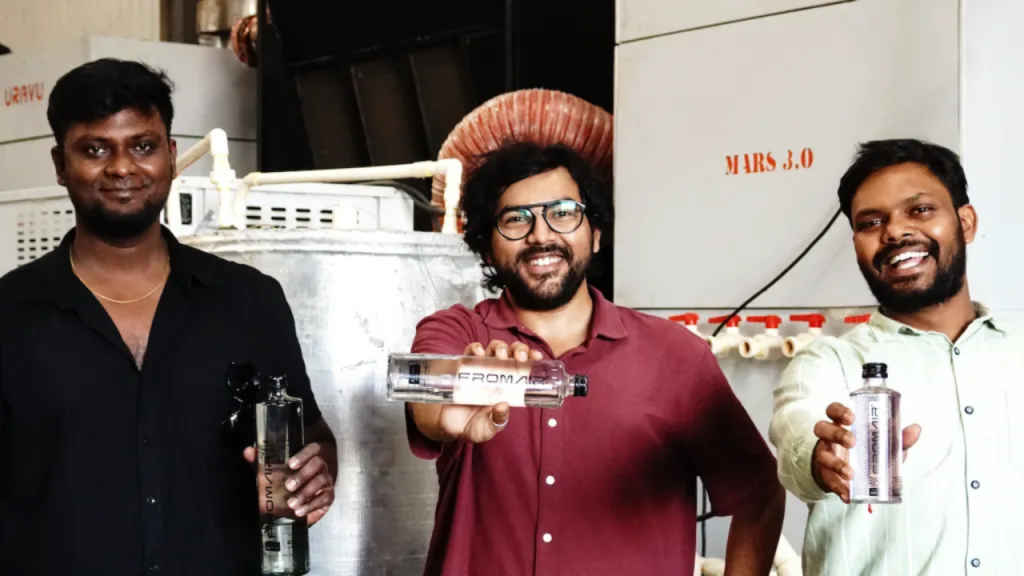Indian innovators combat water shortages with Star Wars-inspired tech
Alongside Govinda Balaji and Venkatesh Raja, Swapnil Shrivastav co-founded Uravu Labs in 2019.
Their system utilises atmospheric water generators with a liquid desiccant to convert air into water.
Each unit produces approximately 2,000 liters of water in about 12 hours.

In 2016, when a severe drought struck Kozhikode, India, student Swapnil Shrivastav experienced the devastating impact of water scarcity. Rationed to just two buckets of water a day, he realised the urgent need for sustainable solutions to address this issue.
 Survey
SurveyInspired by the air-to-water technology depicted in Star Wars, Shrivastav embarked on a mission to transform his curiosity into tangible solutions.
Also read: World’s first AI Beauty Pageant: List of 10 finalists, judging criteria & more

“One element of inspiration was from Star Wars where there’s an air to water device. I thought why don’t we give it a try? It was more of a curiosity project,” Shrivastav was quoted as saying in a report by BBC.
Alongside Govinda Balaji and Venkatesh Raja, he co-founded Uravu Labs in 2019, with a vision to provide communities with access to clean drinking water.
Their system utilises atmospheric water generators with a liquid desiccant to convert air into water. By heating the desiccant to 65°C using sunlight or renewable electricity, moisture is released and condensed into drinking water. Each unit produces approximately 2,000 liters of water in about 12 hours.
Also read: Meta AI vs Microsoft Copilot: Who generates better AI images? Check results

While initially aiming to serve water-scarce communities, financial constraints compelled them to pivot towards commercial clients, particularly in the hospitality sector.
Uravu Labs is delving into the frontier of material science to enhance the efficiency of desiccants, exploring alternative materials for better moisture absorption from the air. According to Shrivastav, these innovations could decrease the necessary heat from 60°C to 40°C.

Furthermore, they aim to conduct pilot projects involving the installation of their units in data centres across India and Singapore. Typically, data centres dissipate excess heat, but Uravu intends to harness this energy to produce fresh water instead.
“This process will result in up to 95% reduction in fresh water consumption [by the datacentre] as Uravu’s system captures most of the waste heat and gives back cold water, thus very little freshwater is needed as a top-up,” Shrivastav said.
Ayushi Jain
Ayushi works as Chief Copy Editor at Digit, covering everything from breaking tech news to in-depth smartphone reviews. Prior to Digit, she was part of the editorial team at IANS. View Full Profile